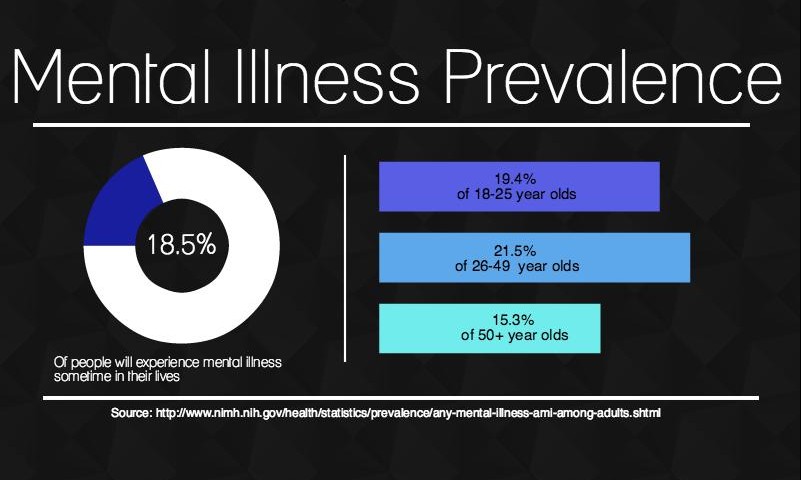By: NICOLE BRODZIK | Lake Voice According to the National Institute of Mental Health (NIHM), 19.4 percent of Americans between the ages of 18 and 25 experience a mental illness. Some of the most common illnesses in the college aged population span from issues like depression and anxiety to eating disorders, self-harm and substance abuse, according to the American Psychological Association.
“Typically late teens, early twenties are when people start experimenting and start having problems,” UMD Psychology department head, Scott Carlson said. “In college there seems to be even more binge drinking than even for people the same age who are not going to college. So there’s something about college that bumps the risk up for that.”
Having students from the College of St. Scholastica, University of Minnesota Duluth and Lake Superior College, Duluth becomes a quintessential college town between the months of September and May each year.
If the NIHM statistics are applied to this population, it means that of the approximately 18,000 college students living in Duluth, 3,492 of them will deal with a mental illness in the next year.
But according to Carlson, you’re not likely to pick those students out of the crowd.
“I think a part of the stigma is that people don’t realize how common things like depression and anxiety are,” he said. “A lot of it is a lack of awareness, people just don’t realize other people’s struggles.”
That’s not necessarily a bad thing. On the one hand, the number of people being diagnosed with mental illness is on the rise, but the number of people receiving treatment and learning how to cope is also rising.
There are a number of different mental health facilities in the Duluth area ready to help those in need. One clinician from St. Luke’s hospital tries to remind the community that those suffering from mental illness are people too and deserve to be treated with respect.
“These are people’s family members, these are people you work with, people you know,” said Erin Metzger, outpatient clinic manager at St. Luke’s. “We’re all one traumatic life event away from needing a helping hand.”
Metzger’s clinic sees a wide variety of people in the Duluth area, including a number of college-aged patients. She said she commonly sees students coming in with anxiety disorders partly due to the high levels of stress surrounding classes, jobs and financial distress.
Carlson agreed with Metzger to a degree, but pointed out that the high prevalence within this age group also stems from a physiological standpoint.
“College students are at a point where a lot of those things would have already starting impacting their lives or would be just hitting them,” Carlson said.
The onset of diseases like bipolar and schizophrenia often begin in the late teen and early adult years according the NIHM. While these illnesses still have a hefty stigma attached to them in social settings, people like Metzger are fighting everyday to provide help to those in need and remind everyone that at the end of the day, we’re all just people.
“I think we’re really trying to start talking about these things, bringing awareness to mental illness and what it actually is,” she said. “This is something to kind of support you, to figure out how to cope and give you the tools you need to be successful.”

